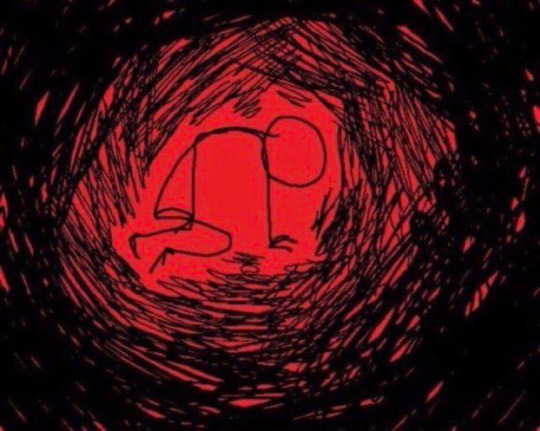References, quotes, articles, personal ideas. You can search by theme, character or page e.g. #p. 205 or #art reference| she/her | i follow with sbirulina
Don't wanna be here? Send us removal request.
Text
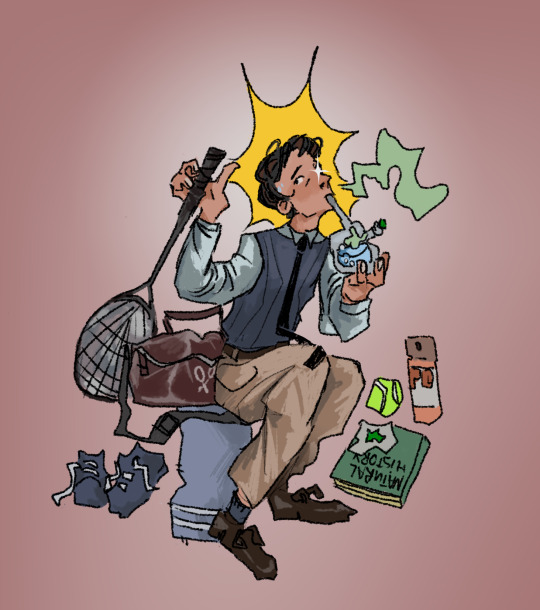
Ну, опять?
33 notes
·
View notes
Text
i spent the whole day consuming postmodern theory and i'm honestly just now realizing that i've only been consuming postmodernism on its fringes (meaning, in its late-stage, abstract, niche and experimental forms) and that postmodernism at its core contradicts much of what i believe in and is so unsustainable as well as intellectually & spiritually exhausting. infinite jest, i'm theorizing, gets most of its postmodern essence in structure, rather than in substance because dfw's exhibition of and love for dialogue, honesty, the diversity of the human condition and most importantly the genuine, contradicts postmodernism's cold irony and societal rejection at its crux. infinite jest, of course, is this bizarre twisted postmodern pretzel that rejects irony ironically but the extent to which it turns postmodernism on its head has just increased its depth to me tenfold. this is actually insane. i thought i loved postmodernism, but, i've learned that with some things in life, the "just jump in" principle should be applied with extreme caution and skepticism. i don't know what to think. i'm still excited to read some pynchon though, lol. i could type eighteen additional paragraphs about all of this but i'm stopping here for everyone's sake.
25 notes
·
View notes
Text
The theory that James Orin Incandenza is the in-universe author of Infinite Jest
I've heard this mentioned, but never really talked about, and also it's hard to find any people circulating this idea online, so here's a couple reasons why I believe this: -One of the only times we hear the author reference themselves is in a place directly related to fathers and sons (Footnote 268, after the section chronicling the incestuous relationship between Matthew Pemulis and his father: "Where was Mrs. Pemulis all this time, late at night, with dear old Da P. shaking Matty 'awake' until his teeth rattled and little Micky curled up against the far wall, shell-breathing, silent as death, is what I'd want to know."). So either this is David Foster Wallace, breaking the fourth wall (meh, not really a favorite of his, he does it in Westward and he isn't a huge fan of that story, also wouldn't he know where she was if he wrote the thing?), some character neither seen now referenced to in the text who somehow has all this information (highly unlikely, seems ham-fisted and dumb), or it's a character that we DO know who has access to all of this information
-While the above was what first got me thinking about this, this one was what kept me thiking: JOI named FIVE of his works "Infinite Jest." It's clearly a name he's fond of... (also the name "David" has a VI, which is six in Roman numerals. That's not anything, I just think it's cute)
-There are no experiences relayed to the reader that take place before the death of JOI that JOI is not in: the scenes of the professional conversationalist, Avril's premature delivery of Mario, the conversation between JOI and his father
-he is incapable of any form of communication other than the use of words — while his preferred art form is film, he can no longer operate a video camera, so his art now takes the form of text
-his big monologue to Gately is about the importance of figurants: things and people that would never get attention in a traditional narrative, the people who exist towards the edges. As the wonderfully named @pissmd points out, Infinite Jest is a novel whose events exist entirely around a main narrative — a story that ends right as the quote-unquote real story is about to begin. To quote them, it is a novel about figurants, yes, but the novel itself is a figurant, kind of
-Wallace gives a fair amount of time to explaining how wraiths work, suggesting it is in some way important. They can move incredibly quickly and peer inside people's minds, both of which would explain how the author knows everything that's happening in the character's heads and how it can elaborate on multiple things happening in rapid succession
-I also think it makes sense on a subtextual level! Wallace talks a lot about writers (specifically fiction writers, which, Incandenza being a screenwriter, applies to him) as a species of oglers, so Incandenza being someone who has to apply an enormous amount of mental effort to be seen, much less understood, by others is kind of an ideal writer, in his eyes.
The biggest problem this idea has, I think, is the narrative interest in Don Gately. The interest in Hal, Orin, Pemulis, Mario, Madame Psychosis, even Marathe and Steeply, kind of, makes sense, but I have no earthly idea why the wraith would follow Gately before he gets involved with Madame Psychosis. Maybe my Wallace-heads can help explain this one for ol' anthrax of effervescence.
Let me know if you think of any rebuttals to this! I'm sure I've missed some big stuff, both for and against this theory. Take care of yourselves, gang!
18 notes
·
View notes
Text
Seasonal Infinite Jest server bump! Does anyone want to start an Infinite Summer 2025?
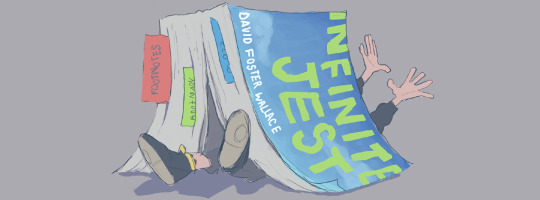
11 notes
·
View notes
Text
Seasonal Infinite Jest server bump! Does anyone want to start an Infinite Summer 2025?

11 notes
·
View notes
Text
RIP Mike Pemulis you would’ve loved CharliXCX and mint juul pods
23 notes
·
View notes
Text
my dealer: got some straight gas🔥😛 this strain is called "le samizdat" you'll be zonked out of your gourd 💯
me: yeah whatever i don't feel shit
5 minutes later: dude I swear the entertainment is such that it can be either our greatest weapon or our deadliest enemy
my buddy rémy marathe: [wheeling back and forth] o.n.a.n is lying to us
42 notes
·
View notes
Text
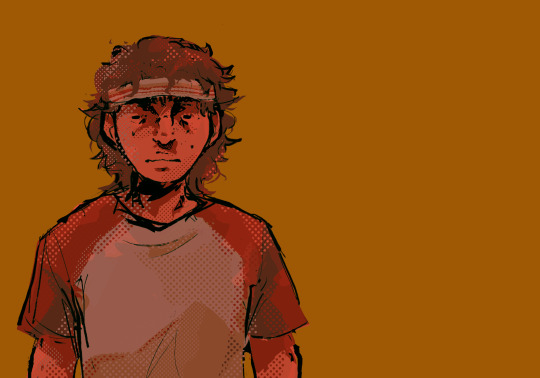
Don’t love how this one turned I just wanted to draw Hal
also, to add on to the screen adaptation discussion, I would recommend watching the royal tenenbaums- many many parallels with IJ
26 notes
·
View notes
Text
7 notes
·
View notes
Text
putting the themes of the novel aside and all that, sometimes I think about Himself's whole 'Hal is like an extra in a movie he's faded and passive I just wanted to make him live his life etc.' towards the end of the book and I feel like he's mistaken. Hal's definitely not super functional and happy but sometimes I want to shake JOI by the lapels and ask him if his son really is a faded outline of a person or if he thinks that because he feels like he can't be himself around his family and has to hide and put up a façade. Is he really inherently super bleak and empty or does he just feel like he has to constantly perform in front of everyone all of the time except for his friends? Have we asked literally anyone else what they think about this I don't know Stice, Mike, Axford anyone. (I remember surprisingly little from this book considering I liked it so much so maybe we did but I just forgot). There might be no cure for that gutting anhedonia but I feel like college would've fixed him a little, being away from his parents&co. It truly is tragic that he never gets that or any chance to really live at all
21 notes
·
View notes
Text
the more shit gets gutted each day the more i start to feel like him i think i'm sick btw

44 notes
·
View notes
Text
just remembered someone’s account of their brother having to pay a library fine at the end of his uni degree because he refused to return Infinite Jest before he finished it.. or a something along those lines. Thinking about this a lot because it’s increasingly looking like I’m going to finish my degree before the Infinite Jest and I’m determined to not let this happen
8 notes
·
View notes
Text
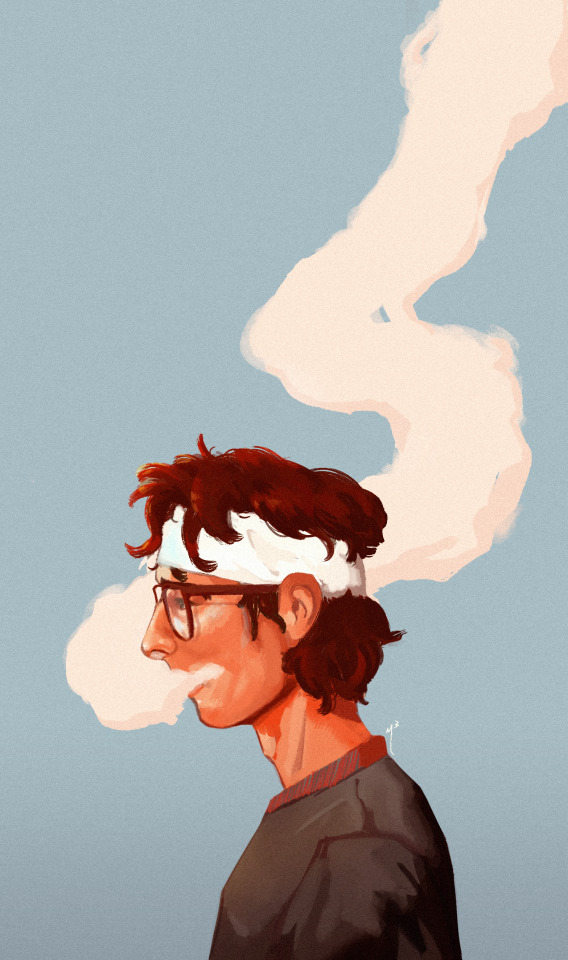
as requested by @blackboxdye. Click for better detail.
32 notes
·
View notes

